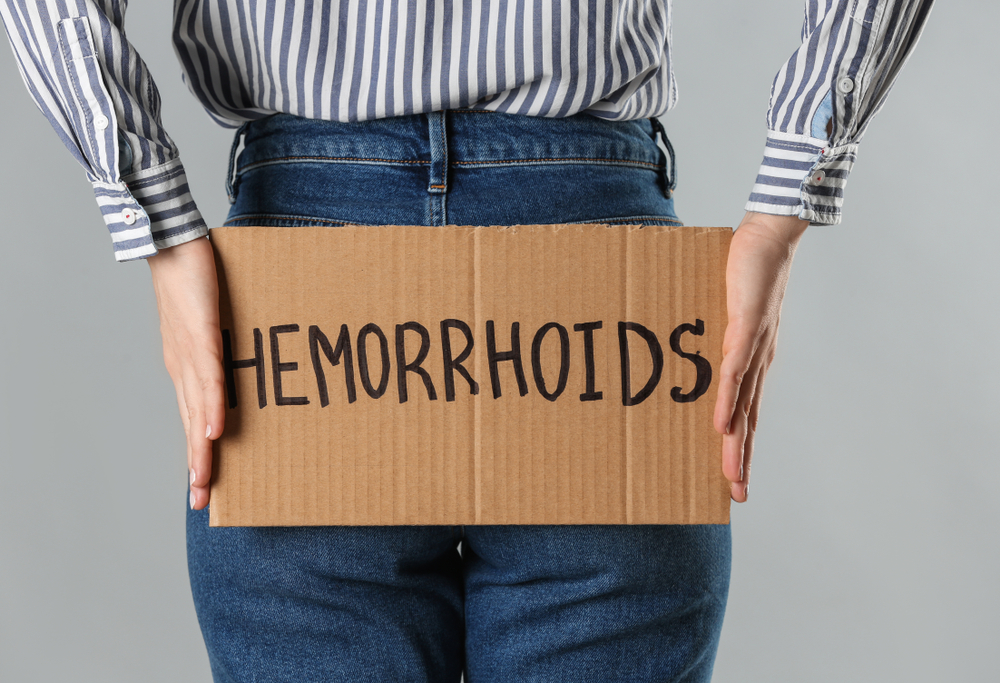The treatment of chronic constipation has been a challenge for medical experts around the world because it is an extremely widespread problem which causes physical and psychological problems in many patients, and it often has a strong effect on their everyday life and health. Gastroenterology, the branch of medicine that is focused on the diseases of the esophagus, stomach, intestines, liver, gallbladder, and pancreas, also focuses on relieving constipation and improving slow digestion. The latter is extremely important because we need to actively focus on the problems with constipation if we want to avoid unpleasant consequences. We will tell you below what they are and how to prevent them.
Constipation has many causes that are divided into organic and functional:
- Organic constipation is caused by certain muscle, nerve or thyroid diseases, growths on or near the intestine (e.g., cancer), sensitivity to gluten, diabetes, IBS (irritable bowel syndrome), etc. This type of constipation can be effectively eliminated only by eliminating the primary disease that slows down the digestion.
- Functional constipation is much more frequent and it is mostly a consequence of unhealthy life habits, such as inadequate diet, insufficient fluid intake, inactivity, etc. Functional constipation is divided into chronic and acute.
The first one is a consequence of one’s lifestyle, while the other one occurs when there is a change to our usual lifestyle, for example, when we rest for a long time (we are lying down due to an illness or an injury, etc.) or when we change our diet. Functional constipation is characterized by straining during bowel movements, lumpy or hard stool, the sensation of incomplete evacuation and rare bowel movements without any obvious organic or structural diseases.
A Silent Enemy to Many of Us
According to the latest data, more and more people are faced with slow digestion and constipation. According to some estimations, 2 to 30 percent of adult population suffers from functional constipation. As much as 17% of the population in Europe is faced with this problem.
People often ignore this problem, thinking it will go away by itself. However, postponement can lead to a deteriorating condition and prolongation of the treatment. It is very important to establish whether it is organic or functional constipation when the first symptoms occur to be able to choose the right treatment. The treatment always starts with a change in lifestyle and eating habits, which is often followed by application of osmotic laxatives.

What are Possible Consequences of Constipation?
If, for example, functional constipation is not treated from the very beginning, it can turn into a chronic one after only a few months. Generally, we can talk about short-term and long-term consequences.
Short-term consequences of constipation are:
- bloating,
- chronic stomach pain,
- blood or mucus in stool,
- defecation urgency.
Long-term consequences of constipation are much more harmful. Here are some of them:
- hemorrhoids (swollen veins in the anus and rectum area),
- crack in the anus mucosa, i.e., anal fissures (light red blood in the stool),
- rectal prolapse (rectum slips from the body through the intestine),
- stool leakage (due to a damage to the pelvic floor muscle, nerves, mucosa…),
- ulcer on the intestine wall, and
- sigmoid volvulus (the lower part of the intestine wraps around itself and stops the blood supply to this area and causes its death).
On top of all the above-mentioned things, constipation also reduces the quality of life and it can be connected to reduced activity and efficiency at work, as well as anxiety and depression.

Treatment of Constipation
To treat constipation it is necessary to first change one’s lifestyle and help the body accelerate digestion in a natural way. The easiest way to do that is to include more foodstuffs rich in fiber into our diet (whole-grain cereals, legumes, carrots, pumpkin, savoy cabbage, spinach, apples, figs, plums, nuts, seeds,…). At the same time, we have to be careful not to increase the amount of fiber in our diet too fast because that can lead to bloating and stomach pain.
Besides that, it is recommended to drink enough fluids, i.e., water (around 2 liters per day for women, and 2.5 liters for men). Also, it is recommended to exercise regularly and stop any unhealthy habits, such as smoking and drinking alcohol.
If even switching to a healthy routine does not help, it’s time for a therapeutic approach which usually starts with taking laxatives. They should be best prescribed by a doctor, depending on the condition of the heart, kidneys, and other organs. Also, other medications you might be using should be taken into consideration, in order to avoid undesired side-effects. It is always vital to first establish the cause of constipation. If it’s organic, the disease that causes constipation has to be treated.
Are You Already Familiar with Donat’s Effect?
It has been clinically proven that Donat natural mineral water speeds up digestion and it belongs to the group of osmotic laxatives since it increases the amount of water in the stool, and thereby its volume. This happens due to a big quantity of sulphates, while magnesium relaxes the intestine muscles and additionally helps the stool to leave the digestive tract.
Frequently Asked Questions
1. Is constipation a common health problem?
Undoubtedly. According to some information, up to 30 percent of adults suffer from functional constipation.
2. Should we see a doctor in case of constipation?
If the problem of constipation has been present for a few days and if it happens often, it is time to think about our lifestyle. Is our fiber-intake high enough, do we drink enough water, do we exercise regularly? It is essential to help our body by leading a healthier lifestyle. However, if such approach proves to be unsuccessful, it is time to consult a doctor.
3. What are the short-term consequences of constipation?
Short-term consequences of constipation include stomach pain, bloating and blood or mucus in the stool.
4. What are the long-term consequences of constipation?
Long-term consequences of constipation include bleeding, hemorrhoids, anal fissures, rectal prolapse and other issues.
5. Is Donat natural mineral water a laxative?
Donat is a natural osmotic laxative, and it has been clinically proven that it accelerates digestion without causing addiction or side-effects.
Choose chapter:






